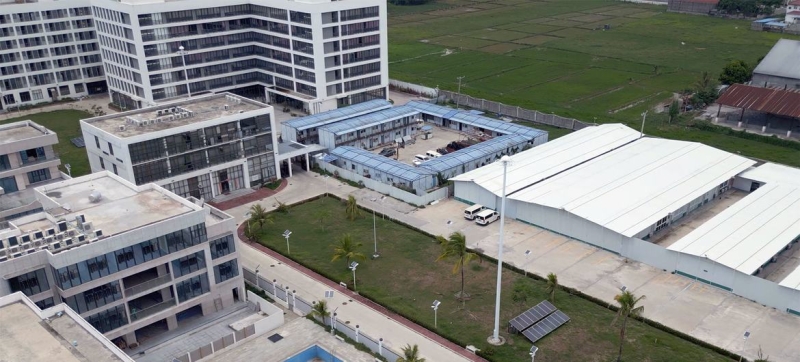
193 UN Member States Adopt Landmark Convention on Cybercrime UN General Assembly Adopts Convention on Cybercrime International Law
After five years of negotiations, 193 UN Member States have adopted a landmark, legally binding Convention on Cybercrime – the first of its kind.
“This landmark step represents the first international UN legal instrument on crime-related issues in more than 20 years,” said Ghada Waly, Executive Director of the UN Office on Drugs and Crime, adding that such a convention was long overdue.
Here are five reasons why this convention matters to people around the world:
1. A New Tool to Fight a Growing Threat
According to the World Bank, in 2023, 67.4 percent of the world’s population used the Internet for everyday tasks such as communication and shopping, as well as more complex purposes including research and innovation.
However, being connected to the Internet comes with significant risks, leaving more than two-thirds of the world’s population vulnerable to cybercrime. People and countries on the other side of the digital divide may be less protected and more vulnerable to cyber threats.
Cybercriminals exploit digital systems to spread ransomware and carry out hacking attacks to steal money, data, and other valuable information. They also use information technology to facilitate other crimes such as drug trafficking, arms trafficking, human trafficking, money laundering, fraud and more.
This threat continues to grow, undermining economies, disrupting critical infrastructure and eroding trust in the digital world.
Until now, there has been no globally agreed text for a Convention on Cybercrime. The new Convention will allow for faster, more coordinated and effective responses to cybercrime, making the digital and physical worlds safer.

The workplace of a cybercriminal.
2. Cooperation
Investigating transnational crimes committed both online and offline relies on electronic evidence, which presents several challenges for law enforcement.
One challenge is the decentralized control of data, networks, and providers, which means that potential evidence may be located in multiple jurisdictions.
Electronic evidence must be obtained quickly, before it is destroyed by criminals or removed through routine technical processes.
The Convention regulates access to and sharing of this data to facilitate investigations and prosecutions. Participating States will also have access to a 24/7 operational assistance network.
In addition to the exchange of electronic evidence, this network will be used to facilitate investigations, identification, freezing, seizure and return of proceeds of crime, as well as legal assistance and extradition.

Fraud farms like this one in the Philippines include shacks for ordinary workers and luxury complexes for managers.
3. Child Protection
Social media, messaging apps, games – all these platforms give predators the opportunity to anonymously manipulate or coerce children into dangerous acts.
The Convention became the first global agreement aimed at protecting children from sexual violence committed through information technology.
Criminalization of such crimes gives governments more tools to protect children.

Children often become victims of cybercriminals.
4. Help for victims
Anyone can become a victim of cybercrime, no matter where they live, and every victim deserves support.
The Convention encourages assistance and protection for victims, including recovery, compensation, restitution and removal of illegal content. This assistance will be provided by states in accordance with their national laws.

Fraudsters who fail to carry out the tasks assigned by their bosses are often tortured.
5. Improving Prevention
Responding to cyber incidents alone is not enough. Serious investment in prevention is needed to effectively combat cybercrime.
The new Convention requires states to develop measures to reduce the risks and threats of cybercrime. This includes training for the public and private sectors, rehabilitation programs for offenders, assistance to victims, and much more.
